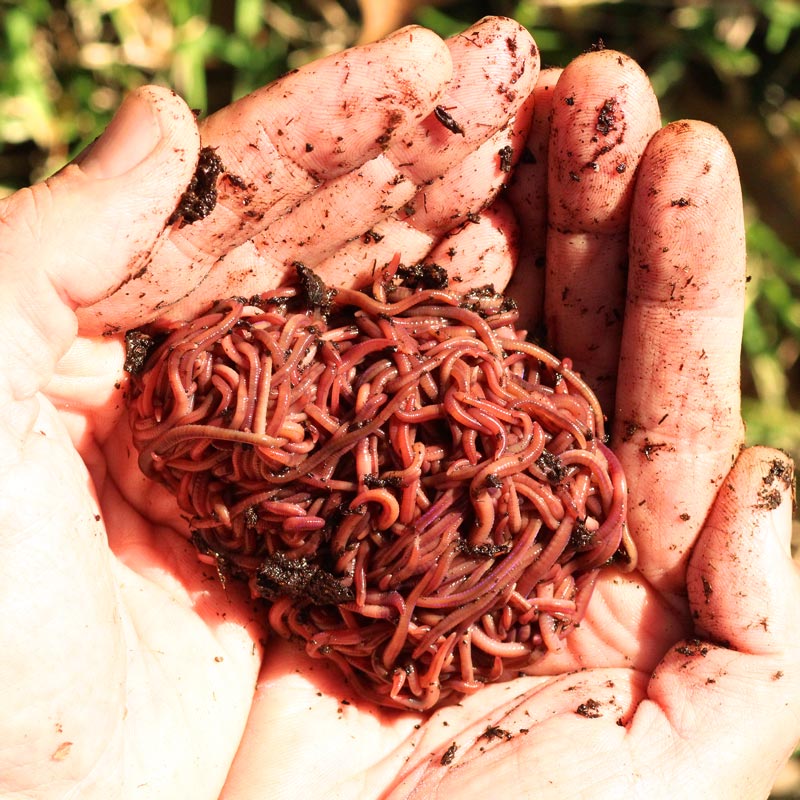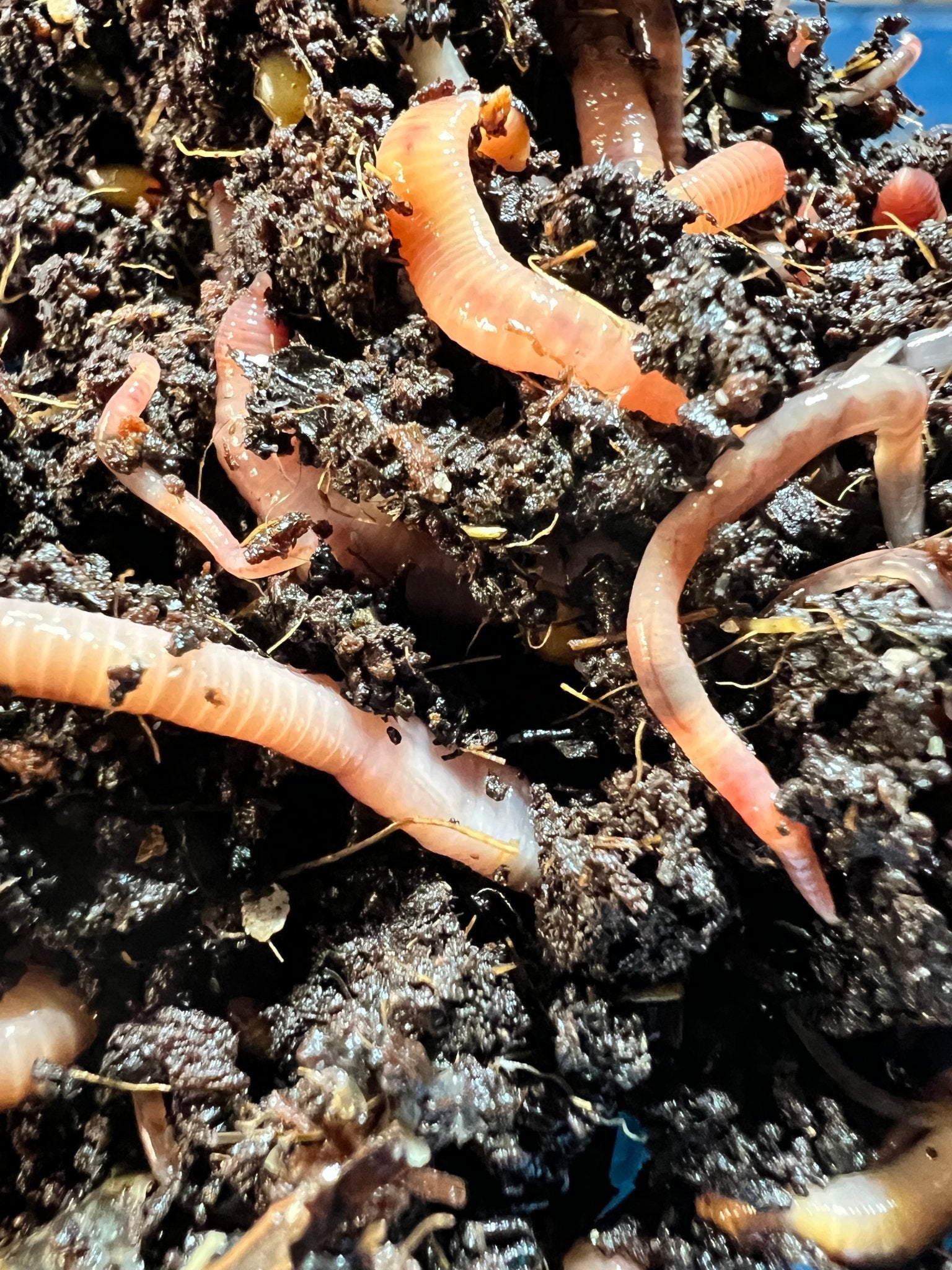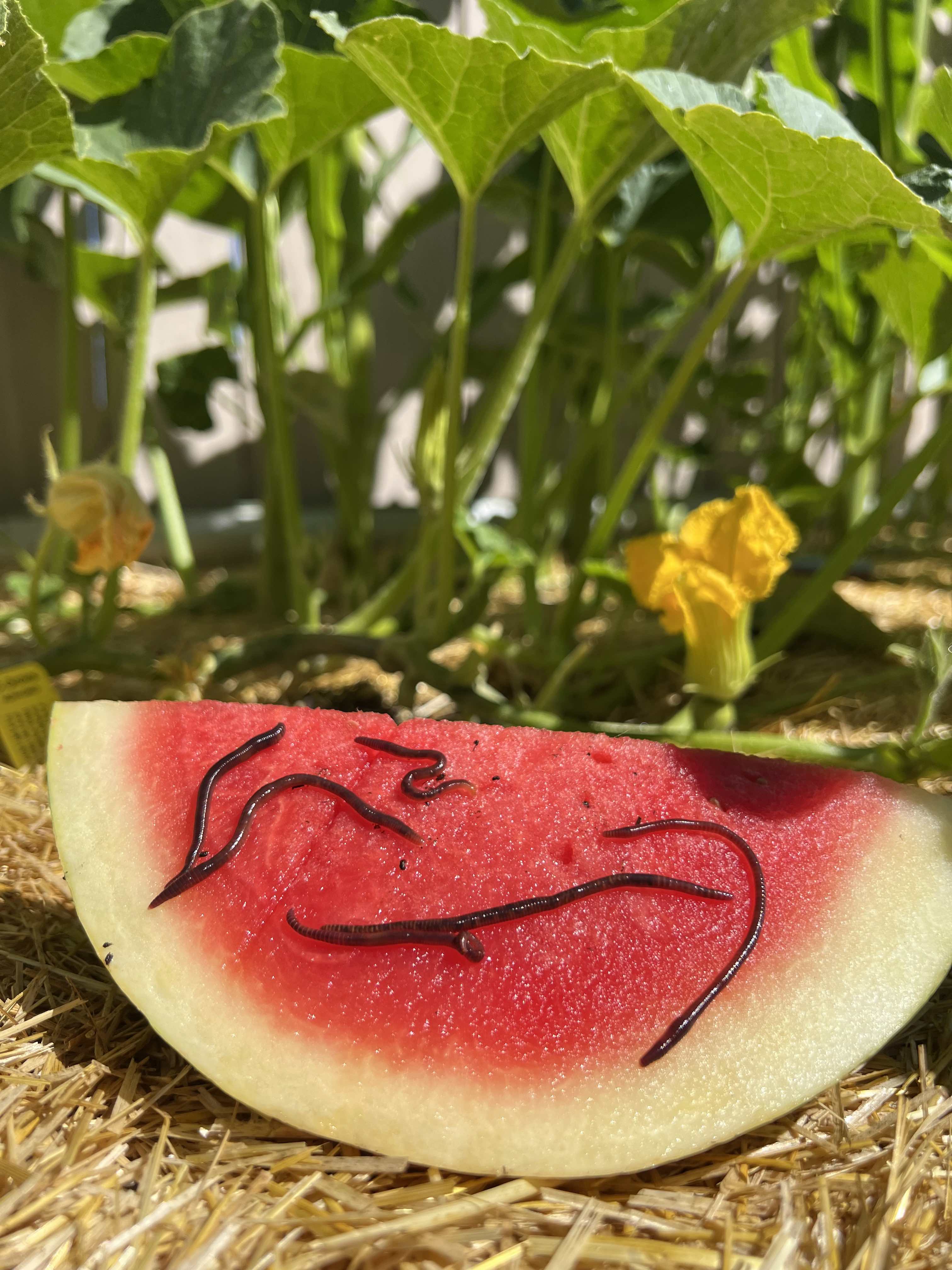Get Red Wiggler Worms - Ideal for Composting and Horticulture
Get Red Wiggler Worms - Ideal for Composting and Horticulture
Blog Article
Red Wiggler Worms Demystified: Unlocking the Tricks of Vermiculture for Greener Living and Nutrient-Rich Dirt
In the realm of lasting techniques for improving dirt top quality and advertising eco-conscious living, red wiggler worms play a crucial yet often overlooked duty. Red Wiggler Worms. Recognizing the complexities of caring for these worms, maximizing their setting, and utilizing their castings can lead to a greener lifestyle and healthier soil for plants to thrive.
The Duty of Red Wiggler Worms
Red Wiggler worms play an essential function in composting systems by effectively damaging down organic matter right into nutrient-rich castings. These voracious eaters eat a selection of organic products, such as cooking area scraps, backyard waste, and paper products. As they feed, the worms' gastrointestinal procedures damage down the raw material right into a penalty, dark, and nutrient-dense material called worm spreadings or vermicompost.
The castings produced by Red Wiggler worms are highly beneficial for dirt health and plant development. They are rich in necessary nutrients like phosphorus, potassium, and nitrogen, which are vital for sustaining healthy plant advancement. Furthermore, worm castings consist of advantageous germs and enzymes that help enhance soil framework, increase water retention, and improve nutrient uptake by plants.
Advantages of Vermicomposting

It improves dirt structure, enhances soil oygenation, and enhances dirt dampness retention. Vermicompost likewise improves the dirt with vital nutrients like phosphorus, potassium, and nitrogen, advertising plant growth and general dirt fertility.
Additionally, vermicomposting assistances lasting horticulture practices by supplying a natural and chemical-free choice to synthetic fertilizers. Red Wiggler Worms. This ecologically pleasant technique not just improves the dirt but likewise assists decrease dependence on unsafe chemicals, advertising a greener and more sustainable way of horticulture
Establishing Up a Worm Container
When establishing a worm bin for vermicomposting, proper arrangement is vital to make sure the success of the composting process. The very first action in setting up a worm container is picking an ideal container.
After including the bed linens, present the red wiggler you can try these out worms to the bin. It is recommended to begin with a handful of why not try these out worms and gradually raise as they increase. The worms must then be given with food scraps such as fruit and veggie peels, coffee grounds, and eggshells. It is necessary to prevent adding meat, milk, oily, or salty foods to avoid drawing in bugs and producing undesirable odors.
Consistently keep track of the moisture levels and temperature level in the worm bin to make certain optimal conditions for the worms. With correct configuration and upkeep, the worm bin will successfully transform organic waste into nutrient-rich garden compost for your plants and yard.
Harvesting Worm Spreadings
To effectively gather nutrient-rich worm spreadings from your vermicomposting system, an organized harvesting approach is important. When it comes time to gather the worm castings, there are a few key steps to follow to guarantee a successful process.

Troubleshooting Common Issues
Identifying and dealing with typical obstacles that might emerge throughout the vermicomposting process is crucial for maintaining a efficient and healthy worm bin. Including excess food scraps can lead to a buildup of moisture and level of acidity in the worm container, possibly hurting the worms. Another issue is unpleasant smells rising from the worm container.
Furthermore, if the worm population is decreasing or the worms show up undesirable, it might be because of environmental stressors such as severe temperature levels or pH degrees. Monitoring these factors and making essential changes is crucial for the wellness of the worms. By repairing these usual problems quickly, vermicomposters can guarantee a effective and smooth vermicomposting procedure while keeping a prospering worm population.

Verdict
In verdict, red wiggler worms play a crucial role in vermiculture by breaking down organic matter right into nutrient-rich dirt. Setting up a worm bin is vital for effective vermiculture, and collecting worm spreadings supplies useful compost for horticulture.
As they feed, the worms' digestive processes damage down the natural matter right into a fine, dark, and nutrient-dense product known as worm castings or vermicompost.
The spreadings created by Red Wiggler worms are highly beneficial for soil wellness and plant development. Including excess food scraps can lead to a build-up of wetness and acidity in the worm bin, possibly hurting the worms.Additionally, if the worm populace is decreasing or the worms appear unhealthy, it can be due to environmental stressors such as severe temperature levels or pH levels. Establishing up a worm bin is vital for successful vermiculture, and collecting worm castings gives beneficial compost for horticulture.
Report this page